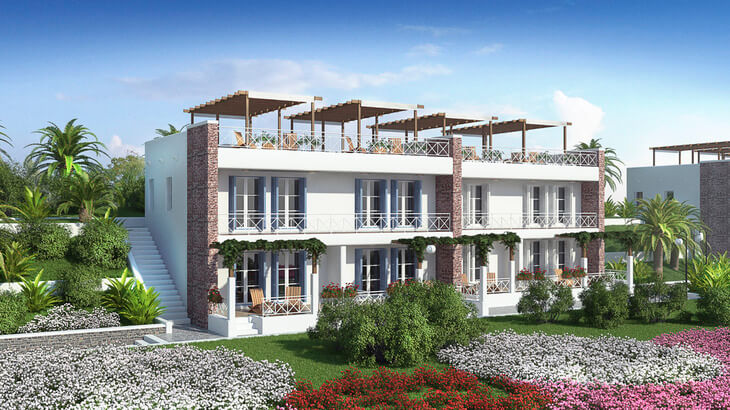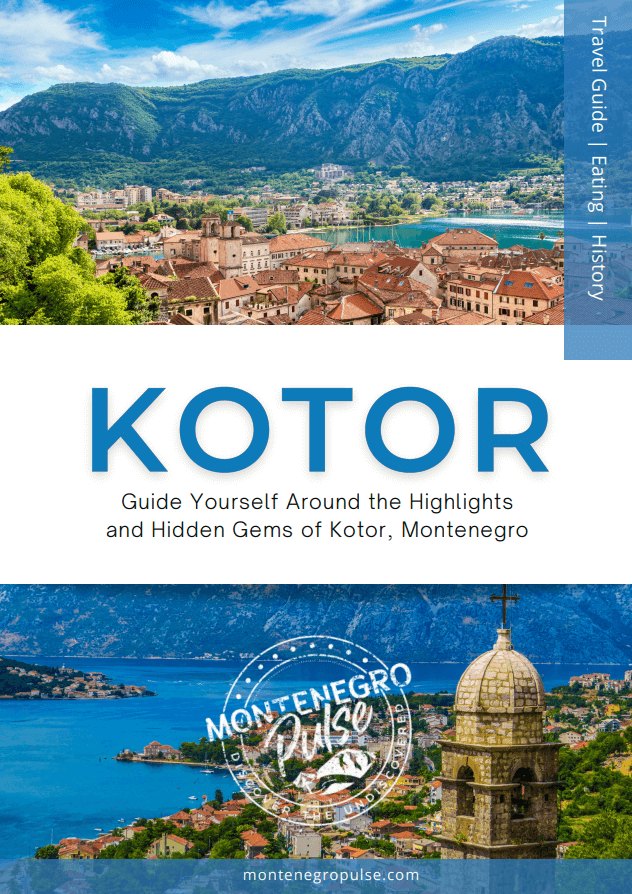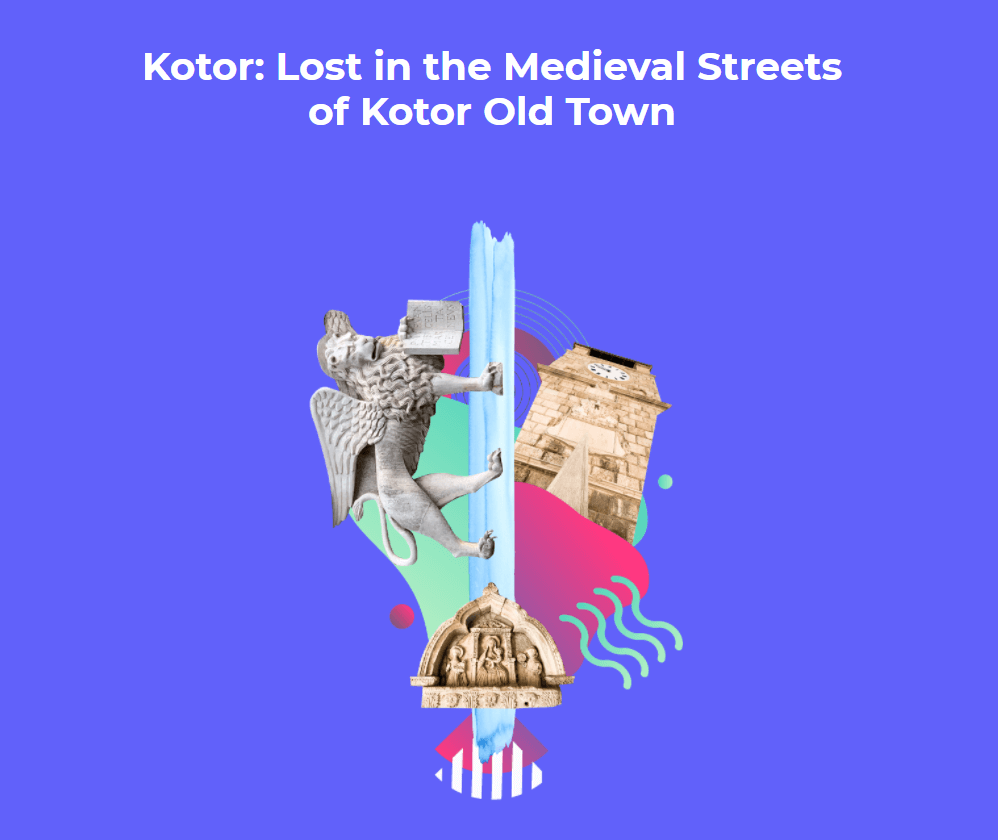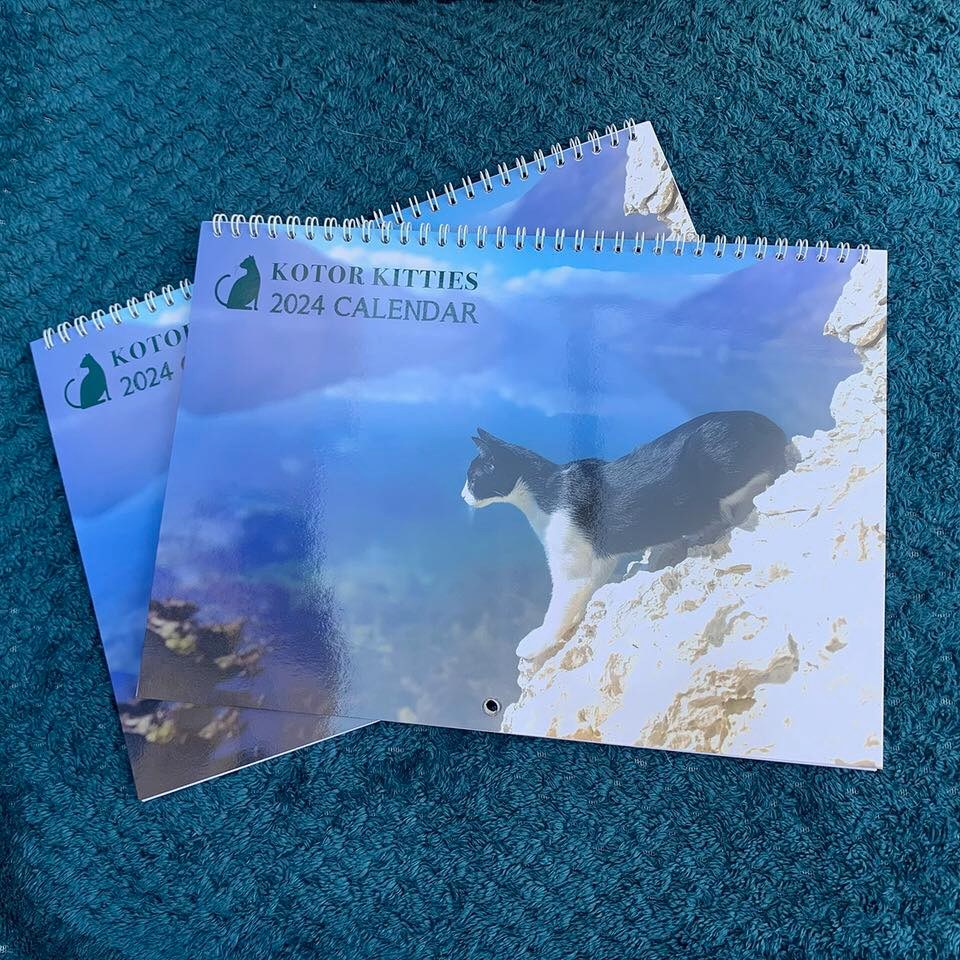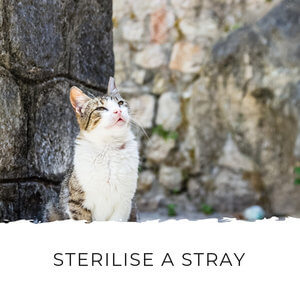Montenegro Pulse contains affiliate links and is a member of the Amazon Services LLC Associates Program. If you make a purchase using one of these links, I may receive compensation at no extra cost to you. See my disclaimer for more information.
Top 100 Montenegrin Names and Their Meanings + Name Generator
BY SARAH
Discover the top 100 Montenegro names and surnames and their meanings. Generate your own Montenegrin names with our name generator!
If you've got Montenegro on your itinerary, you're in for a treat. This Adriatic gem, with its sweeping landscapes, crystal-clear coastlines, and compelling history, is also home to a fascinating collection of traditional names.
Names are like time capsules. They give us a glimpse into a country’s culture, history, and the characteristics its people value.
In Montenegro, names are more than just labels. They carry significant weight, often reflecting a family’s cultural heritage, religious influences, and historical milestones.
Names can be inspired by natural elements, biblical figures, ancient myths, or even significant events at the time of birth. For example, I have a friend who was named Suzana because ‘suza’ means tear and she was born on the day President Tito, then president of Yugoslavia died.
Names also often reflect a family’s religion, and most names fall into Orthodox Christian, Catholic and Muslim faiths. Unlike in other countries, Montenegrins don’t have middle names, just first and last names.
For many Montenegrins, a name is a badge of honor, a link to their lineage, and a narrative of their family history.
It’s traditional to name a baby, particularly a first-born, after its grandparents on its father’s side, so you’ll often find children with the same name as a grandparent. It’s considered an honor to carry the name of your grandfather or grandmother.
We bucked tradition (and caused no small amount of family drama) by choosing not to name our son after his grandparents or give him a Montenegrin name.
However times are changing and this is becoming more popular, with some people choosing to give their kids names like Tigar (Tiger), Tarzan, Rambo or even Traktor (Tractor).
In this blog post, we're delving into the top 100 Montenegrin names – their meanings, origins, and the stories they tell. And at the bottom of this page you can even generate your own Montenegrin name using our Montenegrin name generator!
Contents
Top 50 Male Names In Montenegro
Top 50 Female Names In Montenegro
All Montenegrin Names - Female
Top 50 Male Names in Montenegro
- Nikola - Of Greek origin, meaning "victory of the people".
- Marko - Of Latin origin, derived from Mars, the Roman god of war.
- Luka - Of Latin origin, meaning "from Lucania", a region in Italy.
- Petar - Of Greek origin, meaning "rock" or "stone".
- Jovan - Of Hebrew origin, Serbian form of John, meaning "Yahweh is gracious".
- Miloš - Of Slavic origin, meaning "gracious", "dear".
- Filip - Of Greek origin, meaning "lover of horses".
- Stefan - Of Greek origin, meaning "crown", "garland".
- Vuk - Of Slavic origin, meaning "wolf".
- Danilo - Of Hebrew origin, meaning "God is my judge".
- Aleksandar - Of Greek origin, meaning "defender of mankind".
- Đorđe - Of Greek origin, Serbian form of George, meaning "farmer".
- Mihailo - Of Hebrew origin, Serbian form of Michael, meaning "Who is like God?".
- Uroš - Of Slavic origin, the meaning is disputed, possibly "lord" or "ruler".
- Dušan - Of Slavic origin, meaning "soul" or "spirit".
- Nemanja - Of Slavic origin, meaning "without possessions".
- Pavle - Of Latin origin, Serbian form of Paul, meaning "small" or "humble".
- Radovan - Of Slavic origin, meaning "happy, willing".
- Igor - Of Old Norse origin, Russian form of Ingvarr, meaning "protected by Ing" (Ing being a Norse god).
- Dragan - Of Slavic origin, meaning "precious", "dear".
- Andrija - Of Greek origin, Serbian form of Andrew, meaning "manly" or "brave".
- Radoslav - Of Slavic origin, meaning "glad to glory".
- Mladen - Of Slavic origin, meaning "young", "youthful".
- Saša - Of Greek origin, short form of Aleksandar, meaning "defender of mankind".
- Željko - Of Slavic origin, derived from the word "želja" meaning "desire" or "wish".
- Bojan - Of Slavic origin, meaning "battle" or "fight".
- Radomir - Of Slavic origin, meaning "happy peace".
- Milan - Of Slavic origin, meaning "gracious", "dear".
- Branislav - Of Slavic origin, meaning "protection" and "glory".
- Vojislav - Of Slavic origin, meaning "war glory".
- Velimir - Of Slavic origin, meaning "great peace".
- Srđan - Of Serbian origin, derived from the word "srdačan" meaning "heartfelt".
- Miroslav - Of Slavic origin, meaning "peace and glory".
- Slavko - Of Slavic origin, derived from "slava" meaning "glory".
- Tihomir - Of Slavic origin, meaning "quiet peace".
- Borislav - Of Slavic origin, meaning "battle glory".
- Zoran - Of Slavic origin, meaning "dawn", "daybreak".
- Miomir - Of Slavic origin, meaning "peaceful", "gentle".
- Goran - Of Slavic origin, meaning "highlander", "mountaineer".
- Vladan - Of Slavic origin, meaning "to rule".
- Dragan - Of Slavic origin, meaning "dear", "beloved".
- Bogdan - Of Slavic origin, meaning "gift from God".
- Milorad - Of Slavic origin, meaning "happy work" or "gracious care".
- Slobodan - Of Slavic origin, meaning "free".
- Darko - Of Slavic origin, derived from "dark" meaning "gift".
- Veselin - Of Slavic origin, meaning "joy", "cheer".
- Nenad - Of Slavic origin, meaning "unexpected".
- Blažo - Of Slavic origin, derived from "blaz" meaning "gentle", "pleasant".
- Predrag - Of Slavic origin, meaning "most dear".
- Mirko - Of Slavic origin, diminutive form of names beginning with "mir" meaning "peace".
Top 50 Female Names in Montenegro
- Marija - Of Hebrew origin, the equivalent of Mary, meaning "beloved" or "sea of bitterness".
- Ana - Of Hebrew origin, equivalent of Anna, meaning "grace".
- Jovana - Of Hebrew origin, female form of Jovan, meaning "Yahweh is gracious".
- Milica - Of Slavic origin, meaning "gracious" or "dear".
- Ivana - Of Hebrew origin, female form of Ivan, meaning "Yahweh is gracious".
- Katarina - Of Greek origin, meaning "pure".
- Nina - Of Hebrew origin, meaning "grace"; also of Native American origin, meaning "mighty".
- Danijela - Of Hebrew origin, female form of Daniel, meaning "God is my judge".
- Vesna - Of Slavic origin, the name of the Slavic goddess of spring and fertility, meaning "messenger" or "herald".
- Milena - Of Slavic origin, meaning "gracious", "dear".
- Dragana - Of Slavic origin, female form of Dragan, meaning "dear", "precious".
- Aleksandra - Of Greek origin, female form of Aleksandar, meaning "defender of mankind".
- Nataša - Of Russian origin, diminutive of Natalia, meaning "born on Christmas Day".
- Jelena - Of Greek origin, equivalent to Helen, meaning "torch" or "corposant".
- Ljiljana - Of South Slavic origin, derived from the word "ljiljan" meaning "lily".
- Maja - Of Greek origin, derived from Maia, the name of a Greek and Roman goddess.
- Dijana - Of Latin origin, equivalent to Diana, Roman goddess of the hunt, moon, and nature.
- Sanja - Of Slavic origin, derived from "san" meaning "dream".
- Biljana - Of South Slavic origin, derived from "bilje" meaning "herb" or "plant".
- Nevena - Of Slavic origin, derived from "neven" meaning "marigold".
- Sonja - Of Russian origin, derived from Sophia, meaning "wisdom".
- Tamara - Of Hebrew origin, meaning "palm tree".
- Marina - Of Latin origin, meaning "of the sea".
- Dušica - Of Slavic origin, diminutive form of Duša, meaning "soul".
- Bojana - Of Slavic origin, derived from "boj" meaning "fight" or "battle".
- Tijana - Of Greek origin, possibly derived from Thea, meaning "goddess".
- Snežana - Of Slavic origin, derived from "sneg" meaning "snow".
- Vanja - Of Hebrew origin, derived from Ivan, meaning "Yahweh is gracious".
- Gordana - Of Slavic origin, derived from "gord" meaning "proud" or "dignity".
- Svetlana - Of Slavic origin, meaning "light", "world".
- Radmila - Of Slavic origin, meaning "happy favor".
- Mirjana - Of Slavic origin, derived from "mir" meaning "peace".
- Anđela - Of Greek origin, equivalent to Angela, meaning "messenger" or "angel".
- Ljubica - Of Slavic origin, derived from "ljubav" meaning "love".
- Vasilija - Of Greek origin, female form of Basil, meaning "royal", "kingly".
- Branka - Of Slavic origin, derived from "braniti" meaning "defend".
- Jasmina - Of Persian origin, derived from "yasamin" meaning "jasmine flower".
- Rada - Of Slavic origin, derived from "rad" meaning "happy", "willing".
- Milka - Of Slavic origin, diminutive form of Milica, meaning "gracious", "dear".
- Zorica - Of Slavic origin, derived from "zora" meaning "dawn".
- Slavica - Of Slavic origin, derived from "slava" meaning "glory".
- Vera - Of Slavic origin, meaning "faith".
- Ružica - Of Slavic origin, diminutive form of "ruža" meaning "rose".
- Suzana - Of Hebrew origin, equivalent to Susannah, meaning "lily".
- Zorka - Of Slavic origin, derived from "zora" meaning "dawn".
- Marica - Of Hebrew origin, equivalent to Maria, meaning "beloved" or "sea of bitterness".
- Olivera - Of Latin origin, derived from "oliva" meaning "olive".
- Nada - Of Slavic origin, meaning "hope".
- Andrijana - Of Greek origin, female form of Andrija, meaning "manly", "brave".
- Anka - Of German origin, equivalent to Anna, meaning "grace".
Traditional Male Montenegrin Names
This list of old male Montenegrin names includes ancient names that are characteristic of Montenegro.
Later, many Christian saint names were included in the Montenegrin names, and it also contains many common Slavic names. But throughout history, some old names that are not found among other nations have also prevailed.
- Andraš
- Balša
- Glavoš
- Deljan
- Dragaš
- Đuraš
- Đurđeš
- Ilija
- Jagoš
- Jakša
- Kostreš
- Miraš
- Miroš
- Mrđan
- Mrđen
- Peko
- Radič
- Crnoje
- Šakoje
- Šakota
- Šćepan
All Montenegrin Names - Male
Here’s a list of male Montenegrin names and their meanings. However, please note that in many cases, the exact meanings of names can be hard to pin down, as they can change based on local dialects and historical contexts. The following interpretations are based on common understandings of these names in South Slavic languages:
- Akso - Could be a variant of the name Axel, meaning "father of peace"
- Ananije - Equivalent to Ananias in English, meaning "God was gracious"
- Andro - Equivalent to Andrew in English, meaning "manly" or "brave"
- Anto - Short form of Anton, equivalent to Anthony in English, meaning "priceless one"
- Arsenije - Equivalent to Arsenius in English, meaning "virile" or "manly"
- Arso - Short form of Arsenije
- Baćo - Short form of Branko
- Bajo - Possibly a dialect-specific or regional name
- Bakoč - Possibly a regional or dialect-specific name
- Banjo - Possibly a regional or dialect-specific name
- Balša - Name of an old noble family from Zeta, meaning unknown
- Bašo - Possibly a regional or dialect-specific name
- Batrić - Possibly derived from "bat", meaning "older brother"
- Bato - Diminutive form of names ending in "-bato"
- Bećo - Possibly a regional or dialect-specific name
- Blagota - Derived from "blag", meaning "gentle" or "sweet"
- Blagoš - Derived from "blago", meaning "treasure" or "wealth"
- Blažija - Variant of Blaž, equivalent to Blaise in English, meaning "to stutter" or "lisp"
- Blažo - Another variant of Blaž
- Brajuško - Possibly a regional or dialect-specific name
- Brano - Short form of names starting with "Bran-", derived from "braniti", meaning "to protect"
- Bodin - Possibly related to the old Serbian dynasty Bodin
- Bogić - Diminutive form of names starting with "Bog-", derived from "bog", meaning "god"
- Boro - Short form of names starting with "Bor-", derived from "boriti", meaning "to fight"
- Božina - Derived from "božji", meaning "god's"
- Božo - Derived from "božji", meaning "god's"
- Budo - Diminutive form of names starting with "Bud-", derived from "budit", meaning "to awake"
- Crnoje - Possibly a regional or dialect-specific name
- Čedo - Short form of names starting with "Čed-", derived from "čedo", meaning "child"
- Danilo - Equivalent to Daniel in English, meaning "God is my judge"
- Danko - Diminutive form of Danilo or names starting with "Dan-", derived from "dan", meaning "day"
- Davor - Ancient Slavic name, exact meaning unknown
- Diko - Possibly a dialect-specific or regional name
- Dinjo - Possibly a dialect-specific or regional name
- Dmitar - Montenegrin form of Demetrius, meaning "devoted to Demeter"
- Dobrilo - Derived from "dobar", meaning "good"
- Dobrislav - Derived from "dobro", meaning "good", and "slava", meaning "glory"
- Dojčilo - Possibly a regional or dialect-specific name
- Dragoje - Derived from "drag", meaning "dear" or "precious"
- Dragiša - Derived from "drag", meaning "dear" or "precious"
- Draško - Diminutive form of names starting with "Draš-", derived from "draga", meaning "dear"
- Dumelja - Possibly a regional or dialect-specific name
- Đeka - Possibly a diminutive form of Đorđe
- Đorđije - Variant of Đorđe, equivalent to George in English, meaning "farmer"
- Đukan - Derived from "đuka", meaning "partridge"
- Đuko - Diminutive form of names starting with "Đuk-", such as Đukan
- Đulja - Possibly a dialect-specific or regional name
- Đurađ - Montenegrin form of George, meaning "farmer"
- Đuran - Possibly derived from Đurađ
- Đuro - Montenegrin form of George, meaning "farmer"
- Emilo - Possibly a regional or dialect-specific name
- Gajo - Possibly derived from "gaj", meaning "grove"
- Gašo - Possibly a dialect-specific or regional name
- Gavro - Montenegrin form of Gavril, equivalent to Gabriel in English, meaning "God is my strength"
- Gojak - Possibly a regional or dialect-specific name
- Gojislav - Derived from "gojiti", meaning "to cultivate" or "nurture", and "slava", meaning "glory"
- Gojko - Diminutive form of Gojislav
- Golub - Means "dove"
- Gorčilo - Derived from "gorčiti", meaning "to embitter"
- Gorčin - Derived from "gorčiti", meaning "to embitter"
- Grgur - Montenegrin form of Gregory, meaning "watchful, alert"
- Ignjatije - Montenegrin form of Ignatius, meaning "the fiery one"
- Iliko - Possibly a dialect-specific or regional name
- Isailo - Montenegrin form of Isaiah, meaning "Yahweh is salvation"
- Ivan - Equivalent to John in English, meaning "Yahweh is gracious"
- Iveza - Possibly a dialect-specific or regional name
- Jablan - Means "poplar"
- Jagoš - Diminutive form of names starting with "Jag-", such as Jagoda, meaning "berry"
- Jakša - Diminutive form of Jakov, equivalent to Jacob in English, meaning "supplanter"
- Janko - Diminutive form of Jan, equivalent to John in English, meaning "Yahweh is gracious"
- Jevrem - Equivalent to Ephraim in English, meaning "fruitful"
- Joko - Possibly a dialect-specific or regional name
- Joksim - Variant of Joakim, equivalent to Joachim in English, meaning "Yahweh will establish"
- Jole - Possibly a regional or dialect-specific name
- Jolje - Possibly a regional or dialect-specific name
- Jovaš - Possibly a regional or dialect-specific name
- Joveta - Possibly a dialect-specific or regional name
- Kićun - Possibly a diminutive form of a name
- Kiro - Short form of names starting with "Kir-", derived from Greek Kyrios, meaning "lord"
- Krsto - Montenegrin form of Crispus, meaning "curly-haired"
- Koča - Diminutive form of names ending in "-koča"
- Komlen - Possibly derived from "komo", meaning "beard"
- Komnen - Derived from "komo", meaning "beard"
- Krcun - Possibly a dialect-specific or regional name
- Labud - Means "swan"
- Lakota - Possibly a dialect-specific or regional name
- Lakić - Diminutive form of names ending in "-lak"
- Latko - Possibly a dialect-specific or regional name
- Leka - Diminutive form of Aleksandar, equivalent to Alexander in English, meaning "defender of the people"
- Luka - Equivalent to Luke in English, meaning "from Lucania"
- Maksim - Equivalent to Maximus in English, meaning "greatest"
- Maljota - Possibly a dialect-specific or regional name
- Markić - Diminutive form of Marko, equivalent to Mark in English, meaning "warlike"
- Markiša - Possibly a dialect-specific or regional name
- Mašan - Diminutive form of names starting with "Maš-"
- Mašo - Diminutive form of names starting with "Maš-"
- Mašut - Possibly a dialect-specific or regional name
- Matan - Possibly a dialect-specific or regional name
- Matija - Equivalent to Matthew in English, meaning "gift of Yahweh"
- Mića - Diminutive form of Mihailo, equivalent to Michael in English, meaning "who is like God?"
- Mićun - Another form of Mića
- Mihajilo - Variant of Mihailo, equivalent to Michael in English, meaning "who is like God?"
- Mijat - Possibly a regional or dialect-specific name
- Mijuško - Diminutive form of names starting with "Mij-"
- Mikailo - Variant of Mihailo, equivalent to Michael in English, meaning "who is like God?"
- Mikonja - Diminutive form of Mikailo
- Mikosav - Derived from "miko", meaning "friend", and "sav", meaning "self"
- Mikota - Diminutive form of names starting with "Mik-"
- Miladin - Derived from "mil", meaning "gracious", and "din", meaning "faith"
- Milašin - Derived from "mil", meaning "gracious", and "sin", meaning "son"
- Mileta - Possibly derived from "mil", meaning "gracious"
- Milić - Derived from "mil", meaning "gracious"
- Milija - Derived from "mil", meaning "gracious"
- Milivoje - Derived from "mil", meaning "gracious", and "voje", meaning "battle"
- Milo - Derived from "mil", meaning "gracious"
- Milonja - Derived from "mil", meaning "gracious"
- Milun - Derived from "mil", meaning "gracious"
- Milutin - Derived from "mil", meaning "gracious", and "-utin", an augmentative suffix
- Milo - Derived from "mil", meaning "gracious"
- Miloje - Derived from "mil", meaning "gracious"
- Milonja - Derived from "mil", meaning "gracious"
- Miloš - Derived from "mil", meaning "gracious"
- Miomir - Derived from "mio", meaning "sweet", and "mir", meaning "peace"
- Mijo - Derived from "mio", meaning "sweet"
- Mikan - Possibly a dialect-specific or regional name
- Mile - Diminutive form of names starting with "Mil-", derived from "mil", meaning "gracious"
- Miraš - Derived from "mir", meaning "peace"
- Mirčeta - Possibly a dialect-specific or regional name
- Mirko - Diminutive form of names starting with "Mir-", derived from "mir", meaning "peace"
- Mirkota - Possibly a dialect-specific or regional name
- Miro - Short form of names starting with "Mir-", derived from "mir", meaning "peace"
- Miroje - Possibly a dialect-specific or regional name
- Mirun - Possibly a dialect-specific or regional name
- Mojaš - Possibly a dialect-specific or regional name
- Momir - Derived from "moj", meaning "my", and "mir", meaning "peace"
- Mrdelja - Possibly a dialect-specific or regional name
- Mrđen - Possibly a dialect-specific or regional name
- Mrkonja - Possibly a dialect-specific or regional name
- Mrkota - Possibly a dialect-specific or regional name
- Najdan - Derived from "naj", meaning "best", and "dan", meaning "day"
- Neđeljko - Diminutive form of Nedjeljko, equivalent to Sunday in English
- Nikac - Diminutive form of Nikola, equivalent to Nicholas in English, meaning "victory of the people"
- Nikša - Diminutive form of Nikola
- Novak - Means "newcomer"
- Novelja - Possibly a dialect-specific or regional name
- Novo - Means "new"
- Novica - Diminutive form of Novo, meaning "new"
- Njegoš - A Montenegrin royal dynasty name
- Obren - Possibly related to the Serbian Obrenović dynasty
- Orle - Means "eagle"
- Pajo - Possibly a dialect-specific or regional name
- Panto - Possibly a dialect-specific or regional name
- Pejo - Diminutive form of Petar, equivalent to Peter in English, meaning "rock"
- Pejčin - Possibly a dialect-specific or regional name
- Peko - Diminutive form of Petar
- Periša - Possibly a dialect-specific or regional name
- Perko - Diminutive form of Petar
- Perovan - Possibly a dialect-specific or regional name
- Peša - Diminutive form of Petar
- Petko - Diminutive form of Petar
- Petrašin - Derived from Petar and "-ašin", a possessive suffix
- Pjetar - Montenegrin form of Petar
- Predivoje - Derived from "predivo", meaning "beautiful", and "voje", meaning "battle"
- Prele - Means "beautiful"
- Prelja - Possibly a dialect-specific or regional name
- Premo - Possibly a dialect-specific or regional name
- Puniša - Possibly derived from "pun", meaning "full"
- Pušelja - Possibly a dialect-specific or regional name
- Radan - Derived from "rad", meaning "work"
- Radava - Possibly derived from "rad", meaning "work"
- Radiša - Derived from "rad", meaning "work"
- Radivoje - Derived from "rad", meaning "work", and "voje", meaning "battle"
- Radoje - Derived from "rado", meaning "joy"
- Radonja - Possibly a dialect-specific or regional name
- Radosav - Derived from "rado", meaning "joy", and "sav", meaning "all"
- Radoš - Derived from "rado", meaning "joy"
- Radul - Possibly a dialect-specific or regional name
- Radule - Possibly a dialect-specific or regional name
- Radun - Possibly a dialect-specific or regional name
- Radovan - Derived from "rado", meaning "joy", and "van", meaning "master"
- Radoslav - Derived from "rado", meaning "joy", and "slav", meaning "glory"
- Rajko - Diminutive form of Rajko, meaning "paradise"
- Rako - Possibly a dialect-specific or regional name
- Raško - Possibly a dialect-specific or regional name
- Ristan - Possibly a dialect-specific or regional name
- Risto - Montenegrin form of Christopher, meaning "bearing Christ"
- Rogan - Possibly a dialect-specific or regional name
- Savan - Possibly a dialect-specific or regional name
- Savić - Derived from "sava", meaning "old man", and "-ić", a diminutive suffix
- Sekule - Possibly a dialect-specific or regional name
- Sićo - Possibly a dialect-specific or regional name
- Simo - Diminutive form of Simun, equivalent to Simon in English, meaning "he has heard"
- Simon - Equivalent to Simon in English, meaning "he has heard"
- Srdan - Derived from "srd", meaning "heart"
- Sreten - Means "meeting", traditionally given to children born on Candlemas
- Sreto - Short form of Sreten
- Sretomir - Derived from "sreto", short form of Sreten, and "mir", meaning "peace"
- Stijepo - Montenegrin form of Stephen, meaning "crown"
- Stracimir - Derived from "strah", meaning "fear", and "mir", meaning "peace"
- Šako - Possibly a dialect-specific or regional name
- Šakota - Possibly a dialect-specific or regional name
- Šaleta - Possibly a dialect-specific or regional name
- Šćepan - Montenegrin form of Stephen, meaning "crown"
- Šoro - Possibly a dialect-specific or regional name
- Špiro - Montenegrin form of Spyridon, meaning "spirit"
- Šujo - Possibly a dialect-specific or regional name
- Šuto - Possibly a dialect-specific or regional name
- Tadija - Montenegrin form of Thaddeus, meaning "heart"
- Tadiša - Possibly a dialect-specific or regional name
- Todor - Montenegrin form of Theodore, meaning "god-given"
- Tomaš - Montenegrin form of Thomas, meaning "twin"
- Tomo - Short form of Tomaš
- Tošan - Possibly a dialect-specific or regional name
- Tripun - Montenegrin form of Tryphon, meaning "soft, delicate"
- Turo - Possibly a dialect-specific or regional name
- Uglješa - Derived from "uglje", meaning "coal"
- Valtazar - Montenegrin form of Balthazar, meaning "Baal protects the king"
- Vasilije - Equivalent to Basil in English, meaning "king"
- Vasilj - Equivalent to Basil in English, meaning "king"
- Vasko - Diminutive form of Vasilije
- Velisav - Derived from "veli", meaning "great", and "sav", meaning "all"
- Veliša - Possibly a dialect-specific or regional name
- Velizar - Possibly derived from "veli", meaning "great", and "-zar", an augmentative suffix
- Vesko - Possibly a dialect-specific or regional name
- Vešo - Possibly a dialect-specific or regional name
- Vicko - Diminutive form of Viktor, equivalent to Victor in English, meaning "conqueror"
- Vidak - Diminutive form of Vid, meaning "sight, vision"
- Vido - Diminutive form of Vid
- Vidoje - Possibly a dialect-specific or regional name
- Vitomir - Derived from "vita", meaning "life", and "mir", meaning "peace"
- Vladimir - Means "ruler of the world"
- Vojin - Derived from "voj", meaning "war"
- Vojo - Short form of names starting with "Voj-"
- Vučeta - Possibly derived from "vuk", meaning "wolf"
- Vučina - Derived from "vuk", meaning "wolf"
- Vučić - Diminutive form of Vuk, meaning "wolf"
- Vujan - Possibly a dialect-specific or regional name
- Vujadin - Possibly derived from "vuj", a dialect form of "vuk", meaning "wolf", and "din", meaning "faith"
- Vujaš - Possibly a dialect-specific or regional name
- Vujica - Diminutive form of Vuk, meaning "wolf"
- Vukadin - Derived from "vuk", meaning "wolf", and "-adin", an augmentative suffix
- Vukajlo - Possibly a dialect-specific or regional name
- Vukale - Possibly a dialect-specific or regional name
- Vukašin - Derived from "vuk", meaning "wolf", and "-ašin", a possessive suffix
- Vukić - Derived from "vuk", meaning "wolf", and "-ić", a diminutive suffix
- Vukislav - Derived from "vuk", meaning "wolf", and "slav", meaning "glory"
- Vukojica - Possibly a dialect-specific or regional name
- Vukola - Possibly a dialect-specific or regional name
- Vukoman - Derived from "vuk", meaning "wolf", and "man", meaning "man"
- Vukosav - Derived from "vuk", meaning "wolf", and "sav", meaning "all"
- Vukota - Possibly a dialect-specific or regional name
- Vuksan - Derived from "vuk", meaning "wolf", and "-san", an augmentative suffix
- Vule - Diminutive form of names starting with "Vul-"
- Vuleta - Possibly a dialect-specific or regional name
- Zaharija - Montenegrin form of Zacharias, meaning "Yahweh remembers"
- Zarija - Possibly a dialect-specific or regional name
- Zaro - Possibly a dialect-specific or regional name
- Zejo - Possibly a dialect-specific or regional name
- Zeko - Diminutive form of names starting with "Zek-"
- Zelen - Means "green"
- Ziroje - Possibly a dialect-specific or regional name
- Zrno - Means "grain"
- Žarija - Possibly a dialect-specific or regional name
- Žarko - Derived from "žar", meaning "ember, glow"
- Želidrag - Derived from "željeti", meaning "to desire", and "drag", meaning "precious"
- Živko - Derived from "živ", meaning "live, alive"
All Montenegrin Names - Female
Here’s a list of male Montenegrin names and their meanings. However, please note that in many cases, the exact meanings of names can be hard to pin down, as they can change based on local dialects and historical contexts. The following interpretations are based on common understandings of these names in South Slavic languages:
- Ada - An island or a riverbed
- Anđe - Diminutive of Anđela, meaning "angel"
- Anka - A form of Anna, meaning "grace"
- Birka - Could refer to birch tree
- Bojana - Derived from "boj", meaning "fight" or "battle"
- Borka - Derived from "borba", meaning "fight" or "struggle"
- Bosa - Barefoot
- Buda - Awake, Enlightened
- Budimirka - Female form of Budimir, meaning "awake" and "peace"
- Bula - Could possibly be a diminutive form of a name
- Cmiljana - Derived from "cmilj", a type of plant
- Čeda - Beloved
- Čedomila - Derived from "če" (child) and "mil" (dear), meaning "dear to children"
- Ćetna - Vigilant, Watchful
- Danojla - Female form of Danojlo, derived from "dan", meaning "day"
- Dara - Gift
- Darinka - Diminutive form of Dara, meaning "little gift"
- Dokna - Could refer to a female who is docile
- Draga - Beloved, Precious
- Dragica - Diminutive form of Draga, meaning "little beloved"
- Draginja - Could be derived from "draga" meaning "beloved"
- Dubravka - Derived from "dubrava", meaning "oak grove"
- Dunja - Quince (a type of fruit)
- Dušanka - Derived from "duša", meaning "soul"
- Duška - Diminutive form of Dušanka
- Dušna - Related to "duša", meaning "soul"
- Đekna - Possibly a dialect-specific or regional name
- Đina - Could be a short form of Georgina (Đorđina in Slavic languages)
- Đorđina - Feminine form of Đorđe, equivalent to Georgina in English
- Đurđa - Feminine form of Đuro, equivalent to Georgia in English
- Đurđina - Another variant of Đurđa, also equivalent to Georgina in English
- Femija - Possibly derived from "femme", meaning "woman" in French
- Gara - Could refer to a deposit of soot, or metaphorically to a dark-haired person
- Gina - Short form of names ending in "-gina", such as Georgina
- Gojislava - Derived from "gojiti" (nurture) and "slav" (glory, fame)
- Gora - Mountain or forest
- Gorana - Feminine form of Goran, meaning "mountaineer"
- Gorde - Possibly related to "gord", meaning "proud"
- Gorka - Bitter
- Gospava - Derived from "gospa", meaning "lady"
- Grana - Branch
- Granica - Border
- Groja - Possibly a dialect-specific or regional name
- Grozdana - Derived from "grozd", meaning "grape"
- Ilinka - Diminutive form of Ilija, equivalent to "little Elijah"
- Ilosava - Derived from "ilo" (beauty) and "sava" (sage)
- Ikonija - Derived from "ikona", meaning "icon"
- Jadranka - Derived from "Jadran", meaning "Adriatic"
- Janica - Diminutive form of Jana, equivalent to "little Jane"
- Janja - Another variant of Jana
- Jela - Fir tree
- Jelika - Possibly a dialect-specific or regional name
- Jelka - Fir tree
- Joka - Gift from God
- Jošana - Possibly a dialect-specific or regional name
- Jova - Feminine form of Jovo, short for Jovan, equivalent to Joanna in English
- Julka - Diminutive form of Julija, equivalent to "little Julia"
- Kića - A diminutive form of a name
- Kokna - Possibly a dialect-specific or regional name
- Kosa - Hair
- Kosara - Basket
- Koviljka - Derived from "kovilje", a type of grass
- Krstinja - Female form of Krstin, derived from "krst", meaning "cross"
- Lucija - Lucia, meaning "light"
- Lutka - Doll
- Ljeposava - Derived from "ljepota" (beauty) and "sava" (sage)
- Manda - Diminutive form of names ending in "-manda", such as Manda
- Mara - Short form of Marija, equivalent to Mary
- Marta - Martha, meaning "the lady"
- Mila - Dear, Beloved
- Milanka - Diminutive form
- Milojka - Derived from "mil" meaning "dear, gracious", combined with "joy"
- Milosava - Combines "mil" (dear, gracious) and "sava" (sage)
- Milunka - A variant of Mila, meaning "dear, gracious"
- Miluša - Another variant of Mila
- Milijana - Feminine form of Milijan, meaning "gracious, dear"
- Milja - Another form of Mila, meaning "dear, gracious"
- Miljka - Diminutive form of Mila
- Miljuša - Another variant of Mila
- Mioljka - Possibly a regional or dialect-specific name, related to "mil" (dear, gracious)
- Mirosava - Derived from "mir" (peace, world) and "sava" (sage)
- Miruna - Could be related to "mir" (peace, world)
- Miruša - Another variant related to "mir" (peace, world)
- Mišnja - Possibly a regional or dialect-specific name
- Mišur - Possibly a regional or dialect-specific name
- Mitra - Originally from the ancient Persian word "mitra" meaning "contract, agreement"
- Mladija - Derived from "mlad", meaning "young"
- Novka - Derived from "nov", meaning "new"
- Njegosava - Combines "Njegoš" (a Montenegrin dynasty name) and "sava" (sage)
- Obrenija - Could be related to the Serbian Obrenović dynasty
- Pavka - Diminutive form of Pavao/Pavle, equivalent to Paul in English
- Pejka - Possibly a regional or dialect-specific name
- Pelivanka - Possibly a regional or dialect-specific name
- Perka - Possibly a diminutive form of names ending in "-perka"
- Persa - Diminutive form of Persianka, meaning "Persian woman"
- Petra - Female form of Petar, equivalent to Petra in English, meaning "rock"
- Petrana - Another variant of Petra
- Petruša - Another variant of Petra
- Plana - Could mean "flat" or refer to the mountain range in Serbia, Plana
- Poleksija - Derived from Greek, meaning "much praised"
- Radana - Derived from "rad", meaning "work" or "joy"
- Radojka - Another name derived from "rad", meaning "joyous"
- Raduša - Another name derived from "rad", meaning "joyous"
- Raka - Possibly a diminutive form of names ending in "-raka"
- Rosa - Equivalent to Rose in English, meaning "rose"
- Rumica - Could be a diminutive form of names ending in "-rumica"
- Savka - Feminine form of Sava, a river in South Eastern Europe
- Sinđa - Possibly a regional or dialect-specific name
- Soka - Diminutive form of Sofia, meaning "wisdom"
- Solumija - Could be related to Shulamite, referring to a person from Shunem, an ancient city
- Velika - Means "great" or "big"
- Velinka - Diminutive form of Velika, meaning "great" or "big"
- Veselinka - Derived from "vesel", meaning "cheerful" or "merry"
- Vida - Equivalent to Vida in English, meaning "life" in Spanish
- Vidna - Derived from "vid", meaning "sight" or "vision"
- Vidra - Means "otter"
- Vidosava - Derived from "vid" (sight, vision) and "sava" (sage)
- Vinka - Diminutive form of names ending in "-vinka"
- Vjera - Equivalent to Vera in English, meaning "faith"
- Vukalica - Could be related to "vuk", meaning "wolf"
- Zagorka - Derived from "zagora", referring to a region beyond the mountains
- Zorka - Derived from "zora", meaning "dawn"
- Zorna - Could be related to "zora", meaning "dawn"
Top Montenegro Surnames
Here's a list of some common surnames in Montenegro along with their origins and potential meanings. As is often the case with surname origins, some meanings are speculative or may vary between regions and communities.
Also, Montenegrin surnames, like those in many other countries, are often derived from patriarchal names, occupational terms, or geographical locations.
- Petrović - Of Slavic origin, meaning "son of Petar" (Petar is the equivalent of Peter in English, meaning "rock" in Greek).
- Marković - Of Slavic origin, meaning "son of Marko" (Marko is the equivalent of Mark in English, derived from Mars, the Roman god of war).
- Nikolić - Of Slavic origin, meaning "son of Nikola" (Nikola is the equivalent of Nicholas in English, meaning "victory of the people" in Greek).
- Jovanović - Of Slavic origin, meaning "son of Jovan" (Jovan is the equivalent of John in English, meaning "Yahweh is gracious" in Hebrew).
- Vuković - Of Slavic origin, meaning "son of Vuk". The name Vuk means "wolf" in Slavic languages.
- Popović - Of Slavic origin, derived from "pop", meaning "priest" in Slavic languages. Thus, Popović can be translated as "priest's son".
- Đurović - Of Slavic origin, meaning "son of Đuro" (Đuro is the equivalent of George in English, meaning "farmer" in Greek).
- Radović - Of Slavic origin, derived from the Slavic root "rad", meaning "work" or "happiness". Thus, Radović may be translated as "son of the happy one" or "son of the worker".
- Ivanović - Of Slavic origin, meaning "son of Ivan" (Ivan is the equivalent of John in English, meaning "Yahweh is gracious" in Hebrew).
- Lazović - Of Slavic origin, possibly derived from "laz", which refers to a type of forest or "laziti", meaning "to crawl".
It's important to mention that patronymic surnames (like Petrović, Marković, Nikolić) are widespread in Montenegro, and they denote the lineage from a male ancestor, traditionally the father's given name.
Montenegrin Name Generator
Generate your own Montenegrin name!
Just choose the gender and the first letter of your name and it will give you a Montenegrin name.
You might notice the letters Q, W and Y are missing on the generator. That's because those letters don't exist in the Montenegrin/Serbian alphabet.
Name Generator
- Home
- Travel to Montenegro
- Top Montenegro Names and Their Meanings

